Dumplin’ is the Netflix Original Movie adaptation of Julie Murphy’s phenomenal YA novel from 2015. This book blew my mind when I first read it, and the adaptation is one of those rare movies that brings the essence of the book to life.

Dumplin’ is a coming of age YA novel. It’s a story about a girl who has conflict with her mom, misses a recently-deceased loved one, has a crush on a boy, and fights with her best friend. It resolves in a typical YA novel way; the girl and her mom find a balance, the girl finds a way to make peace with her loss, the girl and her friend make up, and the girl gets the guy. It’s a story that doesn’t have an external antagonist, and barely has an internal one, but has plenty of conflict and growth and satisfying resolution. It’s one of the best movies I’ve seen in recent memory, and one of the best adaptations I’ve ever seen.
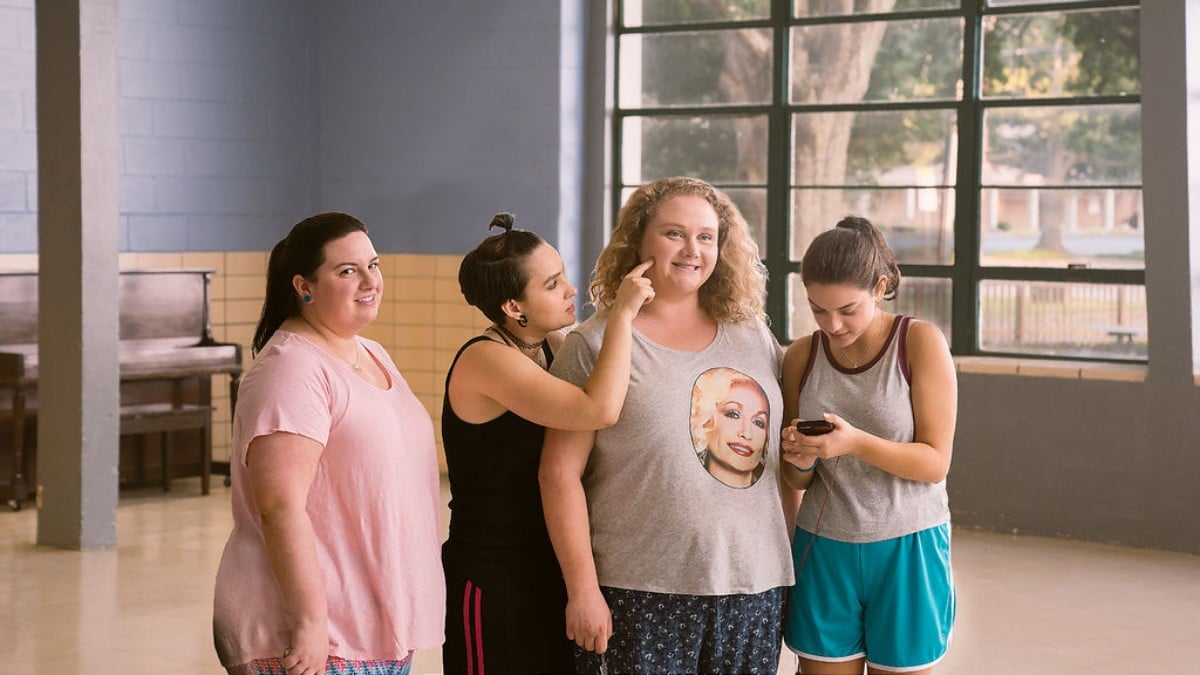
What is sharply original about Dumplin’ is that the main character, Willowdean Dickson, is a fat girl, and that the book was written by a fat woman. But Dumplin’ isn’t about being fat; it’s just about being a kid growing up in a world that doesn’t make sense the way you think it should. I was fighting back tears throughout the second half of the movie; it brought back what it was like to try and understand the relationship I had with my mother, trying to survive the loss of someone who meant the world to me, trying to survive the first big fight I had with my best friend. I basically didn’t get the guy in high school, but I remember that sharp wanting, and the desperate pain of being sure that I’d never get it because of social structures.
The basic plot of the movie is this: Will is the daughter of Rosie Dickson; her mother’s crowning achievement is winning the Miss Teen Blue Bonnet pageant in 1991. The pageant is a huge event in their small town, and Rosie is a local star. Will doesn’t hate the pageant so much as she finds it a huge and annoying inconvenience in her life. Her mother starts keeping “nothing but rabbit food” around the house, and Will is regularly asked by other girls if she’ll introduce them to her mother so they can get pageant tips.
This year, something makes it worse: Will’s beloved Aunt Lucy has recently died. In going through some of Lucy’s things, Will finds a pageant entry form that Lucy had begun to fill out, but never completed or submitted. She decides that she’s going to enter the pageant as a kind of homage to her Aunt Lucy, doing something that Lucy never felt she could.
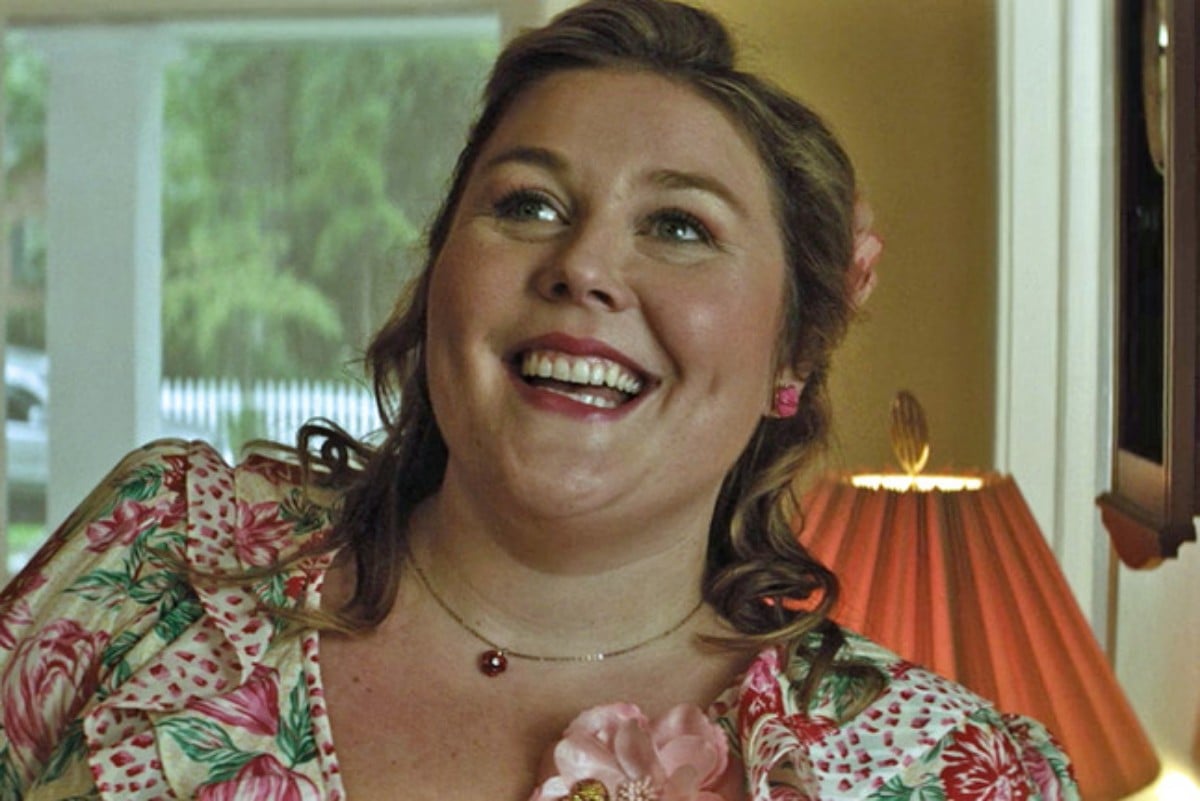
Will’s decision ends up influencing several other girls to enter the pageant, including Millie, another fat girl who Will dislikes because of her constant cheer and boisterous personality, Hannah, a deeply metal lesbian, and Elle, her best friend, entering the pageant in support of Will’s mission. At first, Will seems gently bewildered by the way the other girls seem to be using her as inspiration to enter; she doesn’t want to take on that responsibility. But the narrative gradually shows us, and Will, that every girl has their own agenda. The movie is careful to honor and respect each one.
I have heard from fat friends that they feel particularly seen in this movie and book, and absolutely adore the representation that comes from a fat author writing a fat character. I think this movie has broad appeal, though, to teenage girls and adult women in particular. To binary trans people, this may be a harder watch; there’s a focus on drag queens as mentor characters for Will, Hannah, and Millie, and drag queens are a contentious topic in the queer community.
However, I want to point out one beautiful, exquisitely subtle moment in the movie: the girls attend a drag show featuring Dolly Parton impersonators. Millie realizes what they’re seeing, and makes a (trans insensitive, but coming from ignorance, not malice) comment about the gender-bending aspect of drag. For just one moment, the camera focuses on Hannah’s face as she says “yeah,” agreeing with Millie. As a queer person, I felt so seen in that moment. I remember the first time I saw something affirming my identity as a queer person, something that made me believe I might manage to be a happy, queer adult. I remember the bright hope in my heart. Hannah’s expression perfectly captured that moment, and I had to hug a pillow very very close to keep going.
Want a few reasons to sit down, by yourself or with your preteen or older kid, to watch Dumplin’? Here we go.
Dolly Parton Is Incredible
Both the book and the movie are threaded through with Dolly Parton references, including her life, her songs, and her sayings. Will’s Aunt Lucy loved Dolly Parton, and raised Will to love her just as much. Dolly is one of the many interests that connect Will with her childhood best friend Elle.

When you start talking to feminists, Dolly Parton is a dividing figure. As one of the most prominent country music artists of the 1970s, she was a huge cultural icon. She sang about the struggles of women working “9 to 5” while Tammy Wynette (with Bill Sherrill) told women to “Stand By Your Man.” Songs like “It’s All Wrong, But It’s All Right,” gave women of the time a sexual voice. She points out gendered double standards in “Just Because I’m a Woman.” But she also sang “Jolene,” a song generally considered to be incredibly anti-feminist, though not everyone agrees with that (I don’t). Dolly was also deeply involved in the production of the movie, writing the theme song and performing “Girl In the Movies” with an acoustic guitar for the soundtrack.
Will loves Dolly because “She’s in on every joke you could possibly tell about her. She’s always one step ahead.” Will and Elle drive around their small southern town belting out Dolly hits, and use Dolly trivia both to calm their nerves and to connect in their friendship. At one point, Will is leaving to go to work, and Elle is spending time with her boyfriend; this is right after Will has felt awkward when she bumps into one of Elle’s work friends. Before driving off, Will asks Elle a question about a particular Dolly song; Elle calls out the answer. It’s a moment where the two girls solidify their connection and friendship before needing to go their separate ways for a little while.
Dumplin’ Doesn’t Have a Villain
In most of the media I’ve experienced, especially in young adult media, there’s a clear and established bad guy. Whether you’re looking at the Joker in the latest Batman comic or the Capital in the Hunger Games or the head cheerleader in an entire (frustrating) subgenre of young adult books, there’s always a clear villain that the hero must overcome in order to win their happy ending. When I think of exceptions, I think of adult literature novels by jaded white men writing about housewives affected by ennui. Fine if you like that sort of thing, but not my cup of story. At all.
There is no villain in Dumplin’, no bad guy to defeat. There’s plenty of conflict. Willowdean and Elle fight. Will and her mother Rosie struggle to relate to each other. Will doesn’t know how to accept a relationship with Bo.
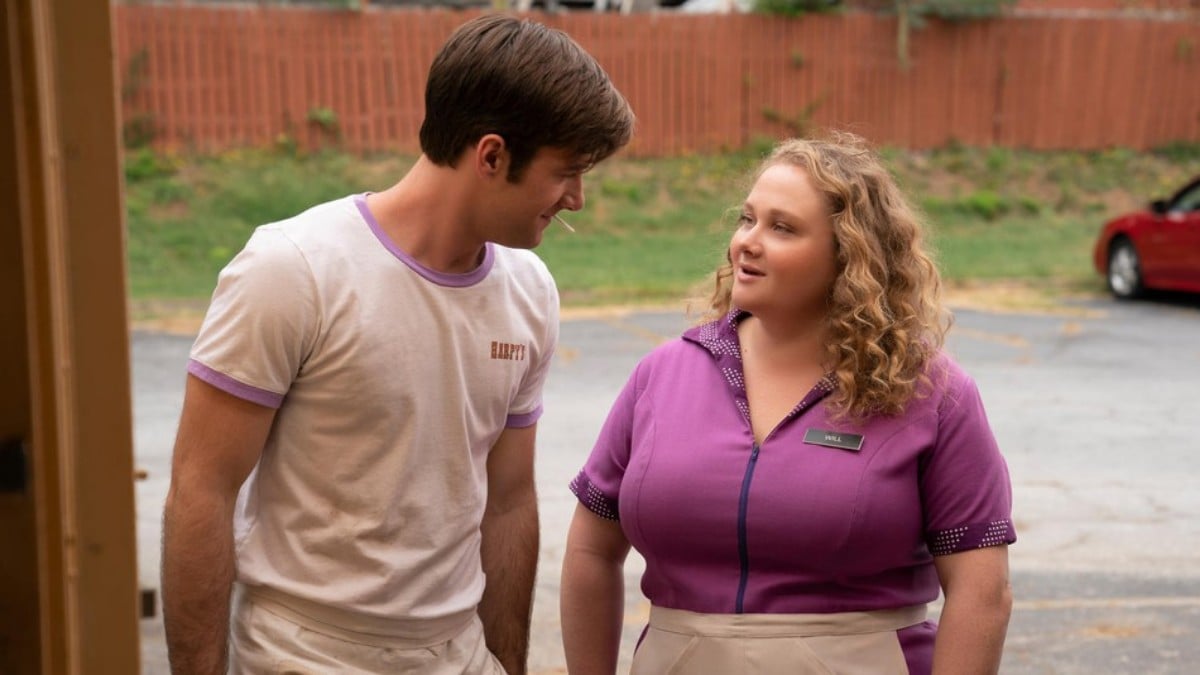
But there’s no point where you go “oooh, there’s the villain.” The pageant is omnipresent in the town, and it annoys Will and makes her relationship with her mom (Miss Blue Bonnet from 1991, and now the woman who runs the pageant every year) more complicated. Will’s aching loss of her Aunt Lucy is palatable throughout the movie, and is often the driving force for Will’s action.
There aren’t any mean girls in Dumplin’. When Millie decides to join what Will calls her “protest in heels,” she also joins pageant boot camp. This group is primarily shown as a bunch of girls in pink t-shirts jogging around town. When Millie is shown running along with them, there’s no indication that they’re making fun of her or trying to exclude her. And when Will sees one of the pageant contestants at her job, the girl nicely asks if she’ll see Will later at practice. There’s no insinuation that the girl is making fun of Will; she’s asking politely and with curiosity.
This is essentially a “girl vs. self” movie. The conflicts don’t need to be externalized, and both Murphy and the movie’s willingness to let that conflict be internal rather than anthropomorphized is incredible. In movies like this, mentor characters become incredibly important; they are mirrors that reflect aspects of the main character, helping them understand who they are and what they desire. (In good movies, like Dumpin’, those characters are also fully realized characters in their own right).
“Figure out who you are, and do it on purpose.”
One incredible moment in the movie comes when Lee, one of the drag queens and the one closest to Aunt Lucy, talks with Will. They’re talking about Lucy, and what she would want Will to do. Caught up in her thoughts about other people’s acceptance and wants about her own actions and behavior, Lee asks what would happen if she made the choice herself, with “ten giant steps forward.” He says that she can give herself permission to act, but if she needs it, he says, “Mother may I? Yes, yes you may.” The adolescent fear of stepping out of line, even in an act of protest and remembrance, is cut through like cheap paper by a character who has worked through it in very different ways—and watching how Will chooses to take that advice, that permission and validation, is what makes this something special instead of a tired redemptive narrative.
Dumplin’ Doesn’t Have a Makeover Scene
There are approximately a zillion movies out there where the nerdy, fat, or unpopular girl gets a makeover and is suddenly more confident, more accepted, and more able to get the hot boy she wants. Sometimes she finds out that the hot boy is overrated and falls for her male best friend; sometimes she exposes the shallowness of the traditionally pretty girls. But one way or another, there’s always the scene where people straighten or curl her hair, do all her makeup, and change up her wardrobe. The message: you only count when you’re conventionally pretty.
Willowdean, Millie, and Hannah don’t have makeover scenes. They do get help from Lee and Ginger (another of the drag queens, who appears to be a trans woman) on how to perform their dance steps, find gorgeous dresses (or suits!) to wear during the pageant, and get some tips on how to walk like you’re the hottest thing on stage. But there’s no sense that the girls are changing in these scenes; they’re simply bringing certain parts of themselves forward. Millie, for example, goes from singing a version of “He Is High and Mighty” while spinning hula-hoops and tap dancing to belting out a diva-worthy solo performance.
Jennifer Aniston Can Act – Who Knew?
If you only ever really knew Jennifer Aniston from Friends (like me) you may be absolutely shocked by the acting chops that she shows in Dumplin’. It would be very, very easy for Rosie Dickson to come across as an unsympathetic character. Rosie’s greatest achievement in her life is having won the Miss Blue Bonnet pageant in 1991; it would be easy for the plot to be how Will participates in the pageant to win her mother’s approval or to piss her mother off. But that’s not what happens. Instead, we see Rosie’s conflicted emotions when Will decides to join the pageant. She seems proud of her daughter for stepping forward in this way, concerned that Will will get hurt, worried that Will is doing this to humiliate Rosie in some way, and hopeful that Will is going to find a way to succeed. The way these two actresses sass at each other until Rosie agrees to sign Will’s pageant form is just brilliant and award-worthy.
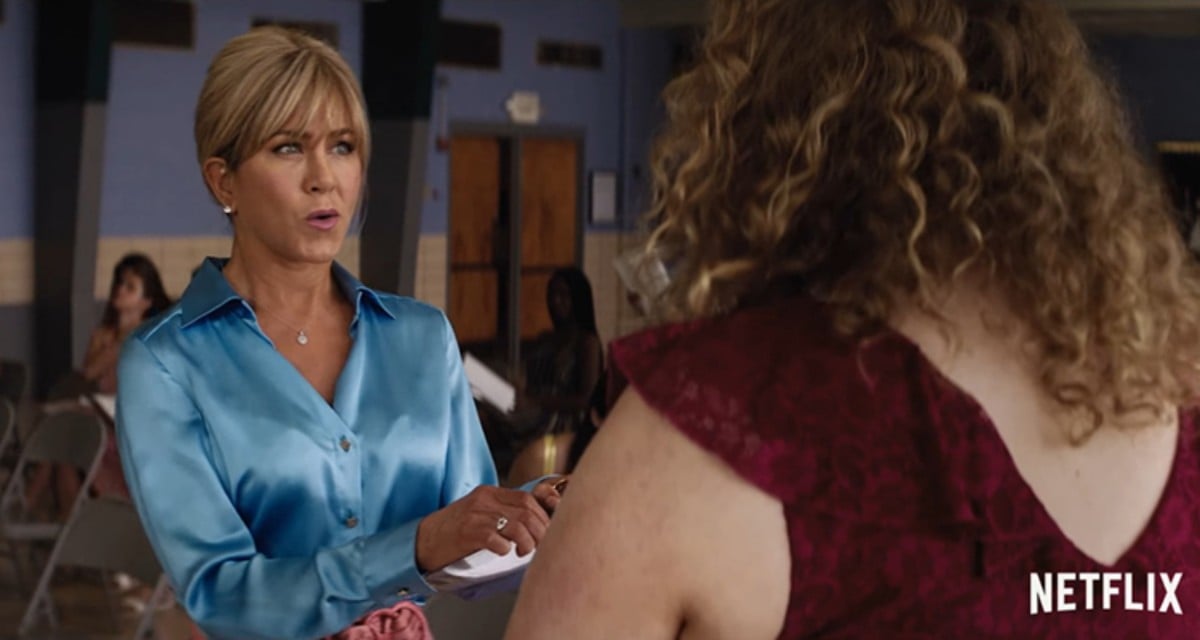
We also get to see Rosie struggling to do better. She calls her daughter Dumplin’ in that way that all mothers have silly nicknames for their kids. I accidentally infuriated my 7-year-old by using her nickname in front of her first-grade class; Rosie calls Will “Dumplin’” in front of basically the entire high school. She thinks it’s silly that Will is upset by the nickname, but by the final scenes of the movie, Rosie is trying to remember that Will hates it.
The scene where Aniston is trying not to cry so she doesn’t ruin her makeup deserves its own, personal award.
Danielle McDonald Is Absolutely Incredible
Danielle McDonald plays Willowdean Dickson, and oh my god can this girl act. Much like Rosie, Will could easily be a jaded character who is mean and sad and inspirational by turns. McDonald brings a subtlety to the character that makes the movie so painfully good. She signs up for the pageant because her aunt wanted to and didn’t. The scene where she’s trying to get her mom to sign the permission form is so beautifully full of body language and facial expression (and even this autistic girl could understand what was going on!) that I almost cried.
Will doesn’t understand why Millie and Hannah want to sign up for the pageant with her. But she’s also not mean to them about it—just confused and bewildered. Her appeal to Bo that he doesn’t understand what it would be like to be with her is earnest and painfully honest. Her conversations with Lee about Lucy are so full of pain and love that I basically started crying and didn’t stop until the end credits were rolling.

Will loves her mother but doesn’t understand her. She sees the attention the pageant and other pageant girls get from her mother; she wants that but doesn’t know how to get it. She is mildly annoyed with the way the pageant takes over her life every fall, but in the same way my kids get annoyed when I start feverishly explaining some fine point of history. They aren’t mad at me, they are just waiting for me to be quiet so they can go play Pokemon.
The Intense Beauty of Female Friendship
There are so few pieces of media that understand the incredible power of feminine friendship for teenage girls. I was ride-or-die for my closest friends in high school, though there’s only one I still keep in touch with now. Friendships between girls can be so painfully close, and Elle and Willowdean’s relationship perfectly captures that intensity. It doesn’t matter that Elle has a boyfriend and work friends; she and Will are the best of friends. When they fight, it’s over something that might seem incredibly small to an adult; it’s absolutely the stuff that my friends and I fought over as teenagers. Will says to Elle that it feels wrong for them to be fighting, and I remember that feeling so hard it aches.
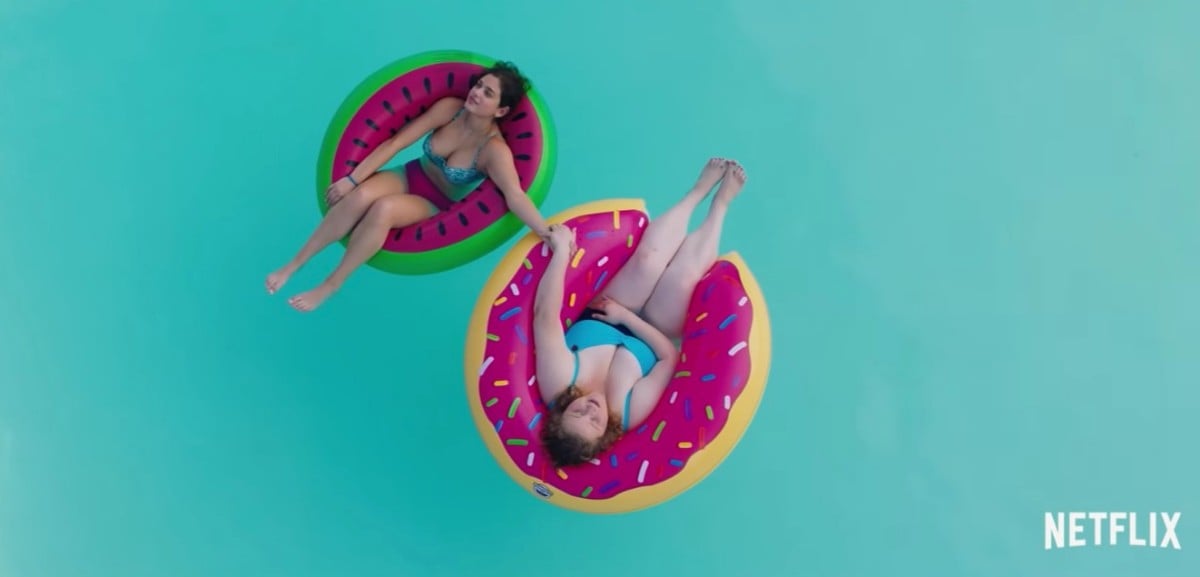
When Will uses a public moment to apologize to Elle, the moment feels both genuine and not manipulative. It’s gorgeous, and I was so glad the girls were friends again that I wanted to hug them both desperately hard.
I also appreciated that Elle is never ever surprised that Bo likes Will. She’s actually the one who repeatedly points out that Bo is flirting with Will. When Will panics over her body after making out with Bo, Elle normalizes that fear; she, too, struggles with her body image when she’s with her boyfriend. While Elle has a physical body type that would be considered more acceptable by societal standards, she’s also not rail-thin; this made the interaction feel genuine to me instead of minimizing.
There Are So Many Reasons to Love Dumplin’
At some point, I have to stop before I describe the entire movie to you. There’s Bo and his incredible sweetness, there’s discovering more about who Lucy was, there’s seeing all these different ways to be a girl, and to be a fat girl, and to survive loss.
So here’s the most important thing I want you to know as you sit down to watch Dumplin’ (because I really think you should). The phrase “feel-good movie” is often used in a minimizing context to dismiss entertainment that isn’t considered serious by enlightened critics. Fork that. At the end of Dumplin’, I did feel good. I felt like I could be braver, stronger, and more determined that I was before. I remembered that old Dolly Parton saying: find out who you are and do it on purpose. I don’t do New Year’s Resolutions, but I am going to try to keep that in mind moving forward.
“Feel-good movie” implies that a movie is superficial and forgettable, and it’s notable that these movies are often in genres which star and feature women in more emotional explorations. There’s nothing superficial or forgettable about Dumplin’, the book or the movie. There’s a great story where the fat girl finally gets her happy ending. There’s a lot of sequins along the way, and there’s a lot of forgiveness and love and joy.
Go watch Dumplin’. Have some popcorn. Bring the tissues. I think you’ll need them.
I’m doing this all on purpose, my purpose, and I’m loving every second! Hope you’re following your dreams now and always ✨ #Dumplin pic.twitter.com/tUuLuopUGW
— Dolly Parton (@DollyParton) December 10, 2018
https://platform.twitter.com/widgets.js
(Edited to correct the attribution of “Stand By Your Man”)




Loretta Lynn did not write “Stand By Your Man”. Tammy Wynette and Bill Sherrill did. Loretta Lynn wrote many feminist songs including, “The Pill”.
You’re right. I was thinking of the version I always heard growing up. My apologies; I’ve corrected the text.